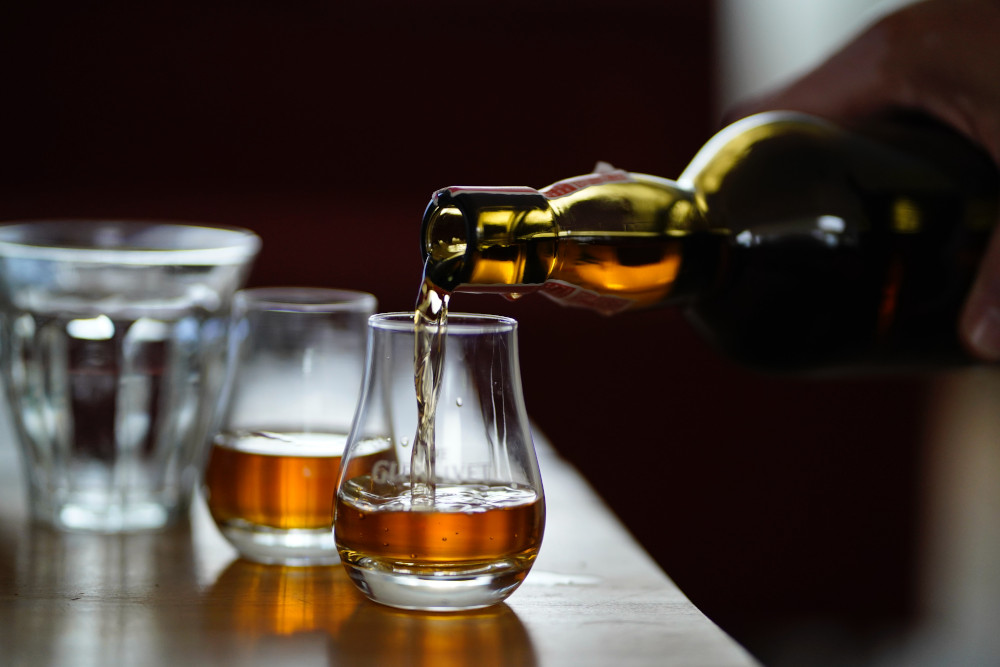Highland Distillers, a U.S.-based whisky producer, is being sued for trademark infringement by Joseph A. Magnus & Co. The lawsuit alleges that Highland Distillers cannot use “Magnus” as a mark on labels for scotch whisky being sold in the United States. “Magnus” is a registered and protected trademark owned by Joseph A. Magnus & Co.
Magnus & Co. is seeking damages along with an injunction by the court to halt the use of the Magnus mark. However, Highland Distillers is fighting back.
Does it matter who used the “Magnus” mark first?
Highland Distillers says their company has been using the Magnus mark since 2015, while Magnus & Co. didn’t adopt the “Magnus” expression until two years later in 2017. However, trademark law requires that a mark be registered in order to be protected. When a mark isn’t trademarked, it’s not protected under trademark law.

Whoever registers a trademark first will become the legal owner of that trademark regardless of past use by other entities. Trademark owners typically have the ability to require other entities to stop using their marks, even if those marks have been in use for a long time.
Trademark law was created to prevent consumer confusion. For example, if RC Cola started using a logo that bore resemblance to the Coca-Cola logo, many consumers would see the logo and automatically think of Coke. RC Cola would sell more products based on this association, and the real Coca-Cola company could sue for damages, including lost sales.
Common phrases, words, and colors can be trademarked
It sounds almost petty to go after another company for using the same word on their label, but Magnus & Co also claims the Highland Distillers label also bears a similar design. The problem is, the designs aren’t that similar, but they both use a creative form of a Keltic knot, which can understandably cause confusion. Magnus & Co. likely doesn’t want Highland Distillers to profit off of their established brand and reputation, even if it’s unintentional.
Trademark law is often misunderstood by entities getting served with a lawsuit because it sounds silly that people can trademark common words. However, trademark law has some real power for trademark holders. For example, wireless giant T-Mobile sues numerous businesses across many industries for using the color magenta. Normally, trademark law only applies within the same industry, but T-Mobile has been able to convince the courts that they own the color magenta across the entire IT world. Some trademark attorneys agree.
T-Mobile isn’t alone. Many corporations have succeeded in trademarking common words, slogans, and colors. Most large corporations don’t back down, but there are exceptions. For example, Kentucky Fried Chicken went after a beloved pub in Britain for using the descriptor “family feast” on its Christmas menu.
Tracy Daly, owner of the Tan Hill Inn in the Yorkshire Dales, was told to remove the phrase from their menu, even though her meal bore almost no resemblance to KFC’s “family feast” meal. In the end, KFC dropped their pursuit and told Daly she could continue using the phrase.
Accidental trademark infringement is surprisingly common
When businesses create logos, labels, and other designs, they either hire a professional graphic artist or create logo designs online. Accidental infringement seems like less of a risk when hiring a professional designer, but that’s not always true. Designers are frequently caught copying other people’s works and many outright use other works in their own designs.
No matter who does the work, designing a logo, label, or image always comes with the risk of trademark and copyright infringement. Businesses need to check trademark registries before approving any designs they create online or receive from professional designers.
Will Magnus & Co. win?
Although trademark law is clear, U.S. courts take all factors into consideration when hearing a case. The Highland Distillers brand may be forced to remove the “Magnus” mark from their labels, but if no ill intentions are found, they probably won’t face fines for trademark infringement. However, the ultimate decision is entirely up to the court.

